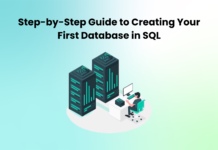Developers need a server when we decide to host our app or website, which means we would like to post our web browser so that it can be selected using the internet. A server is a device that gives us resources and space to connect our web browser or software to the net, and to communicate with what we’ve been built with users around the globe.
There are different web hosting servers on the internet, which can give you space and services so that any web page can be hosted. There are 2 kinds of services for web hosting: conventional and online. Conventional servers are not used too often since they have been substituted by the cloud, however, some of the major businesses do use a dedicated server that is part of the traditional servers.
Because the internet was introduced to users, major changes have been shown, and technological advances have been connected with it every year. This has also shown that if a company is partnered with the internet, it expands the company’s scope and provides valuable products, so if you’d like to transfer your company’s website next year and you are puzzled by words such as cloud and dedicated servers, However, we have given a short description and comparison of these two words here.
You would like to have an idea of just what it is and what choices you have when making a point about your implementation before introducing or embracing cloud services.
Cloud Server vs Dedicated Server comparison
Cloud server.
Instead of running the website on external infrastructure, a virtual application has been designed and several servers are used to include the website with resources and space. The cloud server uses the internet interchangeably For easy words, several virtual servers are used by a cloud server and give you better availability and resources. The cloud doesn’t save your website at a particular location, unlike a dedicated server. For maintaining your website, it uses different systems.
All the cloud jobs get completed virtually, but you only pay for that much space and resources below; your app contains, which means no additional fees. Both for small and large companies, the cloud server is fine. There are different sources of cloud hosting, including AWS (Amazon Web Services), Google, Cloud computing company, etc.
- Management:
The cloud server is handled; the server gives no power over the server to the client. Handling a cloud server is much harder than handling a dedicated server, but unlike only one dedicated server on a cloud server, we’re dealing with 100s of virtual servers.
- Security:
Cloud server just gives protection; however, the reduction is a head-to-head contrast with the dedicated server. This does not mean that anyone can attack a cloud server, cloud servers are extremely secure, although not as dedicated. Enroll in Cloud Security certification to learn the security implementation.
- Scalability:
Cloud servers are infinitely scalable, so you can improve them wherever you want, like space and resources.
- Reliable:
In the cloud, virtual servers hold examples of your website page, so even if the server crumbles or drops down, the example of your website page is controlled by some other server. These virtual servers are making cloud computing more dependable.
- Cost Factor:
It’s the most cost-effective service; here, users just charge for the resources and space you use. All valuable information of server operation is controlled by the provider itself. There is no need for any special server management.
- Customization:
Cloud does not provide even more control to its consumer so that the server cannot be modified by a cloud user.
- Integration of Tools:
Cloud has given you numerous utilities at a lower cost.
Dedicated server.
Part of a standard cloud is a dedicated server. Whenever the definition of a cloud server was not around, the traditional server was also used. The client may purchase a shared or dedicated room on the server to host his or her website on a traditional server.
More than 1 customer cuts the same server in a mutual server, assuming there is a 5 Tera Bytes server, so the service company offers the customer some storage out of these 5 Tera Bytes according to the user’s order.
The consumers can buy the entire server for himself on a dedicated server, where he or she does not want to share the server resources and space with other consumers. A few large corporations and businesses use dedicated servers so they can provide a high degree of security. For small businesses, this selection is not appropriate because it needs the expertise of specialists and professional resources to operate and maintain a dedicated server.
- Management:
The owner has a total power of the server on the dedicated server and can handle the server as required. Although we require full knowledge of the server itself for the protection and repairs of the dedicated server, now we have total control of the server.
- Security:
The major reason to use a dedicated server is protection, attacking a dedicated server could be a difficult decision for a hacker as it is very hard to break the security of this server.
- Scalability:
Developers cannot change the settings of a dedicated server because we have dedicated hardware in use.
- Reliable:
Inside a dedicated server, we’re dealing with a single server, but again if there’s a system error, the entire server and the data that can bring the server down can implode.
- Cost Factor:
Developers want to charge for a required area on the dedicated server. Here we need professional knowledge and high-level resources to handle our server, which is very costly, and small businesses cannot manage to have a dedicated server. If you use a dedicated server for which you require a different team to maintain and handle the server.
- Customization:
As with a dedicated server, the user has complete control over his server, so he or she can modify the server as needed.
- Integration of Tools:
If you’d like to combine a server with certain utility-based methods on a dedicated server, users may have to charge more than the cloud server.
Conclusion
The two cloud servers and dedicated servers have their characteristics. If your company is small or medium-sized, users should choose a cloud server hosting your website and social media. Cloud gives you the best scalability, flexibility, and security. You don’t have to pay more money, unlike a dedicated cloud server. Even strong companies are moving their online business to cloud computing because of its incredible features.
Read Also : VPS vs Dedicated Hosting: Which one to Choose for your Business Needs?

































